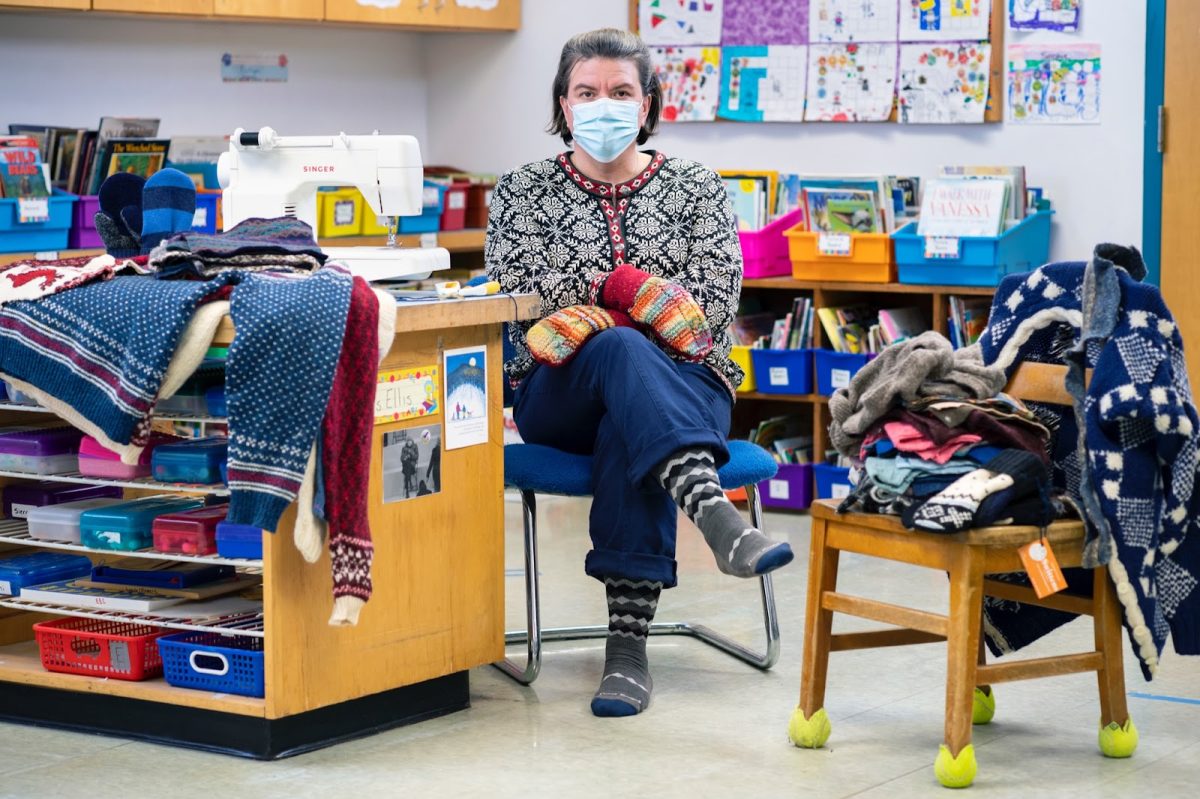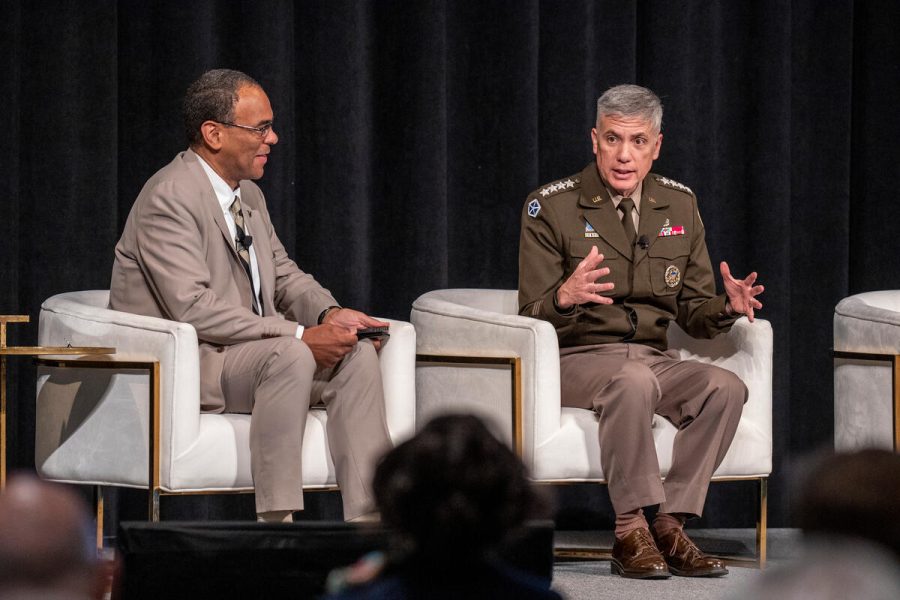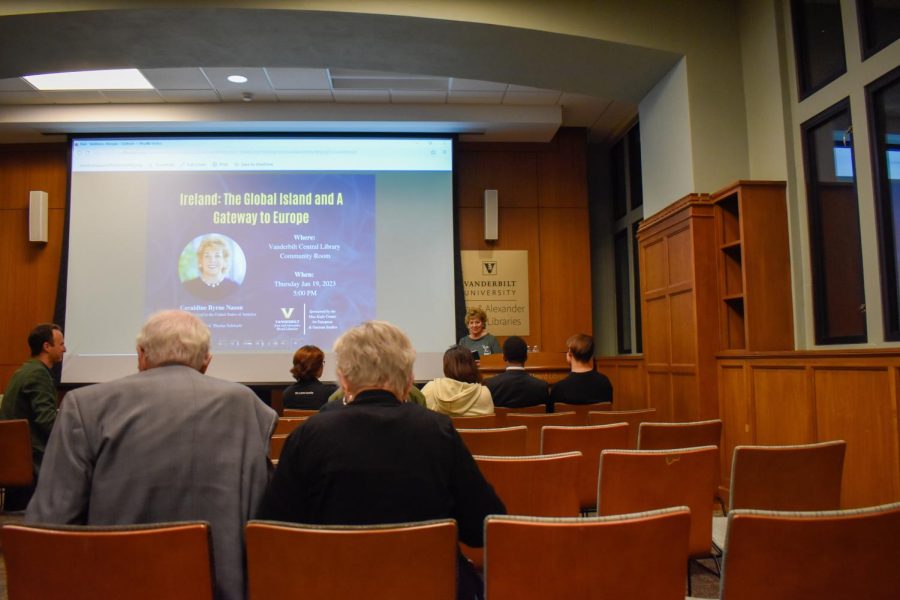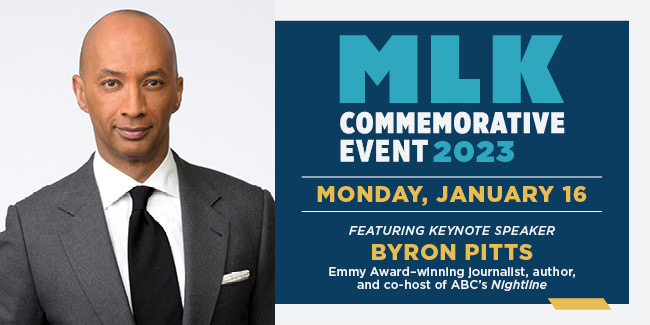Author Jen Ellis became an internet sensation overnight, which can be attributed to a viral meme featuring U.S. Senator Bernie Sanders wearing distinctive mittens at President Joe Biden’s 2020 inauguration. Ellis, the mitten maker, subsequently wrote “Bernie’s Mitten Maker,” which details her experiences navigating fame, being an elementary school teacher in the midst of the pandemic, enduring infertility and engaging with creative pursuits to relax her mind.
The Vanderbilt Hustler: What was your initial reaction to the viral mitten meme, and when did you know that this internet sensation would become a big part of your life?
Ellis: When the meme went viral, I was remote teaching. My phone started ringing, and I was like “who on earth is this?” Somebody said that Bernie was wearing [my] mittens at the inauguration, and that’s why my phone was going off. I just didn’t think it was that big of a deal, and it took me a day or two to realize [the popularity of the meme] because [I] am not a big TV or internet person.
My only public profile online was as a public school teacher, so my secretary at my school started getting calls from reporters all over the world, and people were calling my classroom and emailing me — I got 22,000 emails. It got very big very fast, which was surprising.
You talk about imposter syndrome and feeling as though your experiences were not enough to warrant a book. How did you overcome this fear and get the courage to start writing?
I don’t think I’m ever over the imposter syndrome. Even walking around Vanderbilt’s campus, I am still thinking, “who am I to be doing this?” That causes me to wonder if everyone feels some kind of imposter syndrome — are we all just kind of wandering around thinking if we really belong here? I think the answer to some degree is yes because that’s a very human feeling.
For me, what’s helped is to shift the mindset away from being an imposter and think about it more along the lines of having humility. Walking through the world feeling a healthy dose of humility and being humble is actually okay.
How have mitten-making and other creative outlets helped you find peace, both during the pandemic and right now?
Engaging in creative outlets is a really peaceful way to slow down, and in our society, we don’t seem to value that as much anymore. When I sit down to create, my mind processes things that I’ve been ruminating on, and I get into the groove. It really relaxes me. If you think of yourself as a pressure cooker, crafting can just let the pressure out.
In your book, you discuss the challenges of dealing with overnight fame due to the mitten meme. How did you come to terms with your newfound popularity, and did writing “Bernie’s Mitten Maker” help process the fame and fears that came with it?
The book was originally a way for me to sleep at night. People started impersonating me online; they were using my name and image and communicating with people as though they were me — it was really shocking. I was on a game show, artists started painting the mittens and it was just so baffling. I was writing all of it down as it was happening, just to sort of download it from my brain. Before I knew it, I found that I really had a lot of material to work with; that’s when I knew I should write a book, and it was so helpful.
While writing, my partner and I were trying to keep our lives as normal as possible for our daughter. She was like, “I’m famous,” and we would reiterate that we were normal. I would say we handled the fame to the best of our ability, but who knows? Who could possibly prepare for something like that?
Your book includes a lot of anecdotes from your personal life, such as your relationship, sexual violence, infertility journey, motherhood and mental health. Were there times when you doubted the inclusion of such intimate parts of your life?
Yes, I had doubts about some of the things I included. There’s some stuff about sexual violence in there, which I went back and forth about whether or not to put in it. I ultimately thought that my book is a memoir, and lots of people have had this experience. Including that created a ripple effect; I have a family, five siblings and a friend group, and many of them [didn’t] know about that. It’s not the kind of thing you normally bring up in polite conversation.
I think a lot of people knew about the infertility piece, but it’s still very hard to decide what to leave in and what to leave out. There’s plenty I left out, but I wanted to create a book that was relatable for normal people. Unfortunately, [sexual violence] is an epidemic that our society suffers from. Saying it — or writing it — out loud was a way to connect with a lot of people.
What advice would you give to your students, or students in general, as they navigate their lives post-pandemic?
The sooner you believe that people are doing their best, the better life will be. It’s also important to slow down and do less. I think that as a society, we try to do too much. I think that we put a lot of pressure on young people to build their resumes and be amazing. We tell them that this is how you get in to college, this is how you start your careers, but along the way, there’s a lot of really wonderful human connection that’s lost when you are moving too fast. I would say to slow down, do less and love more.






